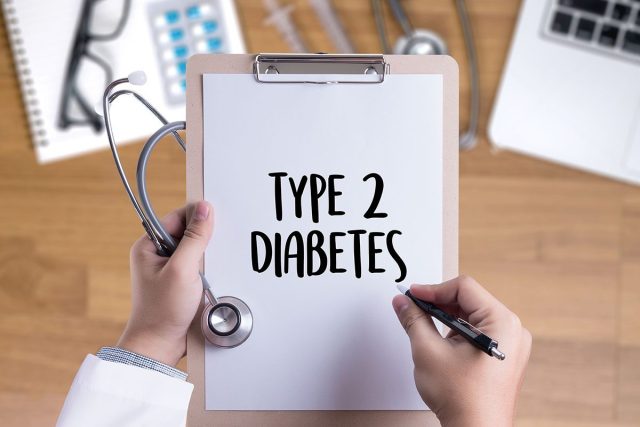What Happens to Your Body When You Eat Greek Yogurt

Greek yogurt is a rich, thick, and creamy addition to your diet that stands out for its impressive nutritional profile. Made by straining regular yogurt to remove extra liquid and whey, Greek yogurt (or any other type of strained yogurt) thicker, denser yogurt that provides twice the protein and less than half the sugar of traditional yogurt, with less sugar and lactose, making it easier to digest for those sensitive to dairy.
This versatile ingredient is packed with probiotics, calcium, potassium, and other essential nutrients, making it a healthy choice for high-protein snacks or as part of your main meals. What's more, it's versatile and can be incorporated into many of your favorite savory or sweet recipes.
In this article, we'll explore its nutrition facts, health benefits, and potential drawbacks, answering the question: "Is Greek yogurt good for you?" Read on to learn more, and for the top options to try, check out The 6 Healthiest Greek Yogurts, According to Dietitians.
Greek Yogurt Nutrition Facts
According to the USDA, here are the nutrition facts for a 2/3 cup (about 5.5 ounces) of plain, nonfat Greek yogurt:
Fat: .6 g (Saturated Fat: 0)
Sodium: 56 mg
Carbs: 5.7 g (Fiber: 0 g, Sugar: 5 g)
Protein: 16 g
Greek yogurt is a nutritional powerhouse among dairy-based foods and beverages. Because the process of making Greek yogurt removes the watery whey protein, the result is a denser yogurt that provides more protein per serving. For example, nonfat plain Greek yogurt is low in calories, total fat, and saturated fat, yet delivers as much protein as 2.5 eggs per serving.
However, the fat and calorie content will increase if you opt for low-fat or full-fat varieties or choose flavored options with added sugars. In addition to its high protein content, Greek yogurt is an excellent source of calcium and provides essential nutrients like magnesium, potassium, zinc, selenium, and B vitamins.
Benefits of Greek Yogurt
It's Packed with High-Quality Protein

Greek yogurt is high in casein protein, which can help build muscle and can help you feel fuller for longer to aid with weight loss. For the most protein per calorie, choose nonfat, plain Greek yogurt in lieu of low-fat or full fat or flavored yogurt. Most servings of nonfat, plain Greek yogurt will provide 16-20 grams of protein per 2/3 cup serving.
It May Help Boost Your Muscle Mass

If you're active, you know that having high-quality protein post-exercise can help your muscles recover more quickly and get stronger to enhance your strength. One study published in Frontiers in Nutrition reported that when nonfat, plain Greek Yogurt was eaten three times a day (total of 60 grams of additional protein from Greek yogurt) on resistance training days, the study participants had improved strength, muscle thickness and body composition compared to when the subjects were provided an equal calorie, carbohydrate-based placebo. The study suggests that incorporating Greek yogurt into your diet after you exercise is a good strategy to help you realize your fitness goals.
It May Have Anti-Cancer Properties

Casein protein in dairy products can exert a wide range of positive effects on the body, such as boosting the immune system, reducing inflammation and protecting against harmful bacteria, viruses, and yeasts, and supporting the growth and proper functioning of the digestive system. According to research published in Medical Oncology, laboratory studies are investigating the role that casein protein may have on inhibiting the growth of leukemia cells, breast, and ovary cancer cells. While more research is needed, this potential benefit of enjoying nutritious Greek yogurt is another reason to add Greek yogurt to your shopping list.
It Provides Beneficial Probiotics

Greek yogurt provides a variety of lactic acid bacterium. If you look at the label of your Greek yogurt container, it will state that it contains live cultures or active cultures. Some of the most common lactic acid bacteria used in Greek yogurt include Lactobacillus acidophilus. Lactobacillus casei, Lactobacillus gasseri, Lactobacillus johnsonii and Bifidus.. The beneficial bacteria in Greek yogurt can help improve the balance of the healthy bacteria in your GI tract.
Research shows that a more "balanced" gut microbiome can help improve your immune health, aids digestion and metabolism, and may reduce risk for chronic diseases, according to research published in the journal Cells.
It May Help You Lose Weight

The casein protein in yogurt is slow to digest, which helps to keep your blood sugar levels stable and it also helps you feel fuller longer. Studies have shown that after eating yogurt, there is an increase in hunger-quashing hormones, glucagon-like peptide and peptide YY. The available relevant literature suggests that yogurt can help control your appetite to help you more easily lose weight and keep it off. The available relevant literature suggests that yogurt can help control your appetite to help you more easily lose weight—and keep it off.
It's Good for Your Bones

A serving (about 2/3 cup) of Greek yogurt provides about 175 milligrams of bone-building calcium, making it one of the better sources of calcium of all foods. The calcium in dairy foods is also very absorbable, as opposed to calcium that is present in non-dairy foods like kale or nuts. According to research published in Archives of Osteoporosis, a study with more than 3,200 subjects found that older adults who reported eating milk and yogurt were associated with better bone mineral density and yogurt only showed a slight protection against hip fractures. Enjoying Greek yogurt is a great way to help enhance the resiliency of your bone health as you age.
It May Help Lower Risk for Diabetes

Recent studies are building the case that Greek yogurt may help reduce your risk for type 2 diabetes. While the exact mechanisms of action are not completely fleshed out, evidence suggests that yogurt is involved in the control of body weight and energy homeostasis and may play a role in reducing the risk for type 2 diabetes. The impact of some of the specific nutrients in Greek yogurt, like protein and calcium, and lactic acid bacteria's impact on gut bacteria are known to help stabilize blood sugar, according to a review article on the subject in the Journal of the American College of Nutrition. When enjoying yogurt, be sure to avoid the sweetened varieties or choose zero-sugar options of Greek yogurt to obtain the blood sugar control benefits of Greek yogurt.
Potential Drawbacks of Eating Greek Yogurt
It Can Be Sugar-Rich

One of the major drawbacks with Greek yogurt (and traditional yogurt) is that some of the flavored options can be high in sugar. For example, a flavored Greek yogurt often has more than 20 grams of sugar, 15 grams (3.75 teaspoons) of which are from added sugars. The good news is that there are oodles of options in supermarkets for flavored Greek yogurts that are either low or no sugar added. For example, one of the options that I often purchase is the Chobani Low Sugar and Zero Sugar options. Most of the other national brands also have low and no added sugar options, so be sure to check out the Nutrition Facts to see how much sugar it contains.
Final Thoughts: Is Greek Yogurt Good for You?
When you choose the right Greek yogurt, it can be an excellent food to incorporate into your meals and snacks. It is very dependent upon the type and flavor that you purchase. If you partner Greek yogurt with sugary treats, like granola, then it's not the best choice. I also recommend to most of my clients that they choose nonfat and low fat plain Greek yogurt as much as possible. Some of the brands that fit the bill include options from Chobani, The Greek Gods, Fage, Stonyfield, Oikos and Two Good.
- Source: https://pubmed.ncbi.nlm.nih.gov/31114790/
- Source: https://pmc.ncbi.nlm.nih.gov/articles/PMC11239739/
- Source: https://pmc.ncbi.nlm.nih.gov/articles/PMC9818925/
- Source: https://pubmed.ncbi.nlm.nih.gov/26175486/
- Source: https://pmc.ncbi.nlm.nih.gov/articles/PMC3641848/
- Source: https://www.tandfonline.com/doi/full/10.1080/07315724.2015.1102103









